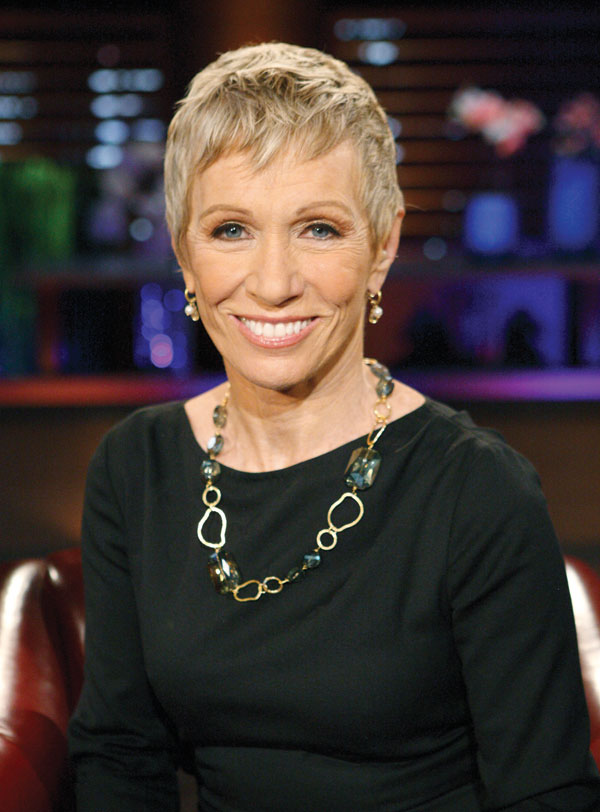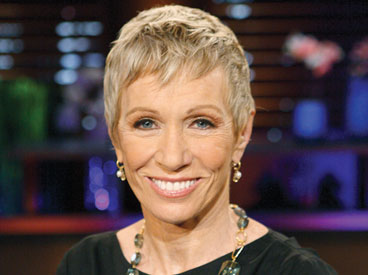
Nobody gets eaten alive on the hit show Shark Tank on ABC, but there are plenty of emotional wounds as budding entrepreneurs pitch products and concepts to top business moguls. Holding her own in the lively exchanges is Barbara Corcoran, whose rags-to-riches story serves as powerful inspiration to the contestants.
Had Corcoran pitched her idea for a Manhattan real estate company to the Sharks when she set out on her journey to the top 40 years ago, they might well have delivered the show’s signature “thumbs down.” She was working as a waitress, but with a borrowed thousand dollars, she formed the Corcoran Group, and boldly built her little company into a New York City powerhouse. In 2001, she sold her company for $66 million.
Today, Corcoran is a familiar face with her weekly appearances to talk about real estate trends on theToday Show as well as Shark Tank where she has a reputation for sympathy and charm as well as toughness.
Question: How do viewers feel about you as the first female shark?
Barbara Corcoran: They all say, “We love how you give it to those guys.” What surprises me, though, is how much they ask about my own personal struggle to find success. I grew up poor in a tiny house with 10 children. We got one new dress at the start of the school year. It was a struggle, but when I look back, I think about what fun we had. I give all the credit to my mother for nurturing each of our talents. I was dyslexic. I wasn’t a good student. I hated bringing my report card home. But instead of criticizing, my mother kept saying, “You have a great imagination.”
Q: Now that you have money, do you like to buy things?
BC: When I go to shop for clothes I don’t even look at the price tag. But I understand being poor, so I know I have a responsibility to help others. When I sold my company, someone gave me the idea to establish an education trust. We’ve had 27 people go to college with that fund.
Q: What do you think fueled your ambition?
BC: I never was chasing the gold. That wasn’t valued in our family. It was all about the competition. I’m so hungry now for the next step, whatever that might be. I want to get the most out of my great life.
Become a Saturday Evening Post member and enjoy unlimited access. Subscribe now



